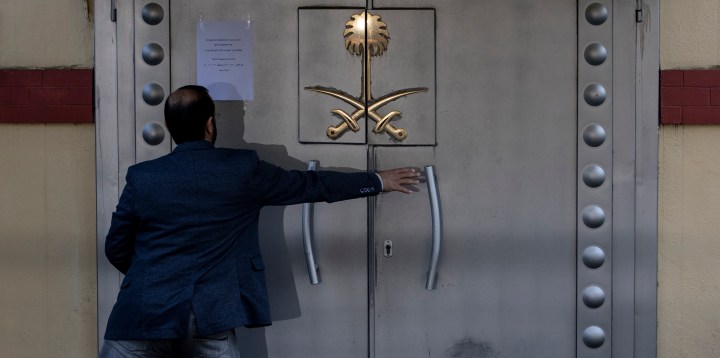Op-Ed
Nowhere to run, somewhere to hide – the status of embassies as places of refuge

What does international law say about the status of embassies as places of refuge? Are they part of the territory of the receiving state or rather part of the sending state? And what are the consequences of the conclusion?
Jamal Khashoggi’s disappearance, and possible torture and murder took place in the Saudi consulate in Istanbul, Turkey on 2 October 2018. Julian Assange has since 2012 been resident in the Ecuadorian Embassy in London, United Kingdom. In December 2015 the United Nations Working Group on Arbitrary Detention opined that Assange’s deprivation of liberty was arbitrary and a violation of international law.
Most recently Assange has instructed his legal team to sue the government of Ecuador for violating his fundamental rights by threatening to remove his protection (and his pet cat) and summarily cut off his interaction with the outside world through limited internet access.
What does international law say about the status of embassies as places of refuge? Are they part of the territory of the receiving state or rather part of the sending state? And what are the consequences of the conclusion?
The principles of diplomatic immunity are among the oldest in international law. All states have an interest in the exchange and protection of diplomats, and the rules of diplomatic protection are well settled and strictly observed.
To enable a diplomatic mission to carry out its functions freely, Article 22 of the Vienna Convention on Diplomatic Relations (1963) states:
1.The premises of the mission shall be inviolable. The agents of the receiving state may not enter them, except with the consent of the head of the mission.
2. The receiving state is under a special duty to take all appropriate steps to protect the premises of the mission against any intrusion or damage and to prevent any disturbance of the peace of the mission or impairment of its dignity.
3. The premises of the mission, their furnishings and other property thereon and the means of transport of the mission shall be immune from search, requisition, attachment or execution.
This Vienna Convention does not entrench a principle of extra-territoriality regarding embassy premises. Diplomatic premises are not regarded as part of the sending state’s territory. Thus the Saudi consulate in Turkey is part of the territory of the Turkish State, and Ecuador’s embassy in London is not part of the territory of Ecuador, but part of the United Kingdom. Acts occurring within those diplomatic premises take place on the territory of the receiving state (ie the state within whose geographic borders the embassy is situated), not on that of the sending state.
But embassy premises are “inviolable”. They may not be entered by authorities of the receiving state, except with requisite consent. Persons within embassies are protected. Thus, six years later, Assange, the founder of WikiLeaks, remains in the Ecuadorian embassy, unable to leave without being arrested by the British police (since international law does not recognise a right of safe passage out of a country of refuge to an asylum seeker). Assange’s safety arises not from the fact that the Embassy is an extra-territorial extension of the territory of Ecuador, but because of the principle of inviolability.
Khashoggi’s alleged murder in the Saudi consulate in Turkey raises questions over the extent to which Turkish authorities enjoy jurisdiction to investigate. Despite the principle of inviolability, Turkish authorities have actively investigated the disappearance of Khashoggi and claim to have audio and video evidence which shows that Khashoggi was killed by a team of Saudi agents in the consulate.
How Turkey came into possession of such footage is of interest. Both the consulate and the residence of the Saudi consul have been searched, and Turkish prosecutors have taken statements from the consulate’s locally employed staff. Indications are that Turkey does not consider Article 22 a complete bar to its investigation, and Turkey is intent on establishing the truth of what happened within the Saudi consulate on 2 October 2018. And If Turkey determines that a crime occurred on its territory what could it do? Would an extradition request be viable? And if a court agrees with Assange’s complaint how could it enforce any order?
These developing situations continue to test understanding of the principle of “inviolability” and the notion that embassies and consulates are sacrosanct and immune from scrutiny by or interest to the receiving state. In a world of increasing tensions and distrust between nations, we foresee less willingness by the international community to turn a blind eye to what occurs on diplomatic premises and increasing challenges to the boundaries of the principle of inviolability. DM
Anton Katz SC and Sarah Pudifin Jones are practising advocates in Cape Town and Durban. Katz was a member of the United Nations Working Group on mercenaries (2011 -2018)


















 Become an Insider
Become an Insider